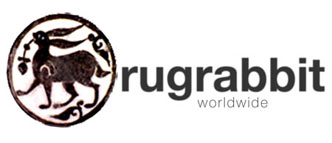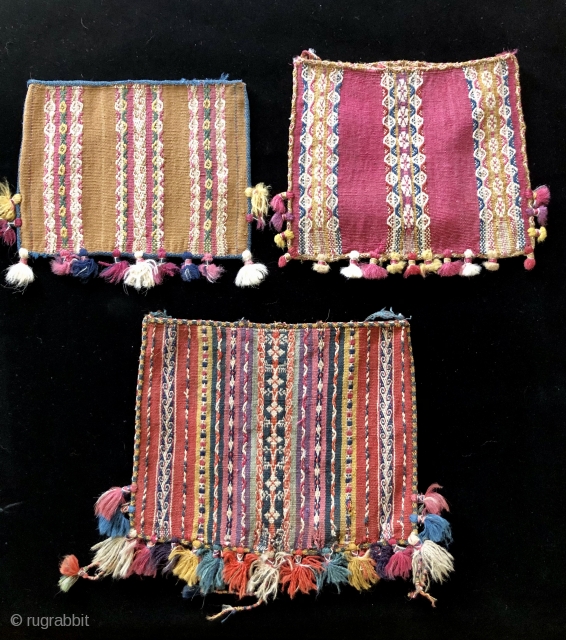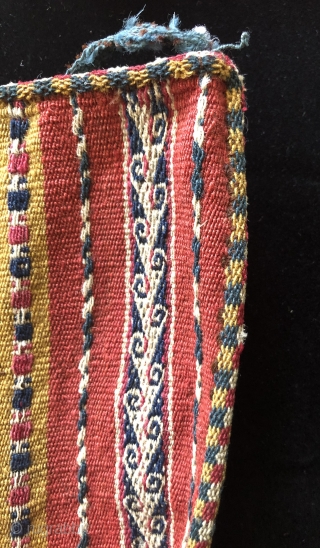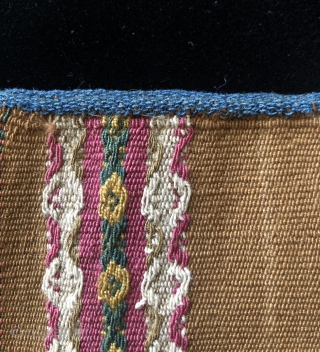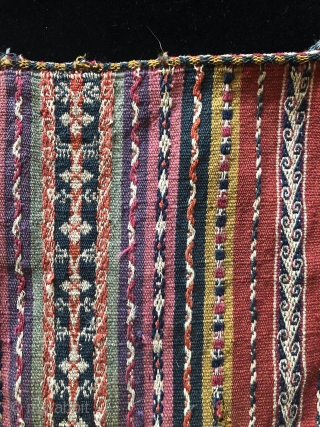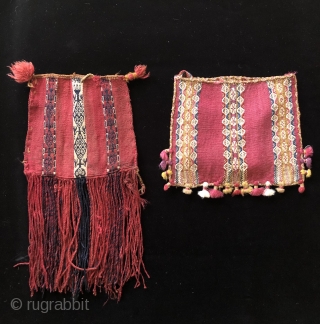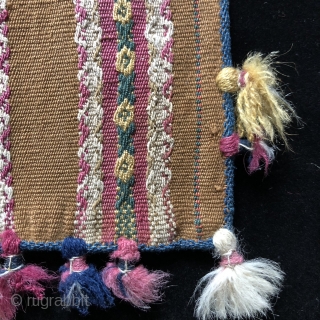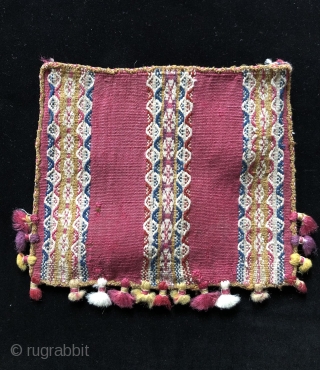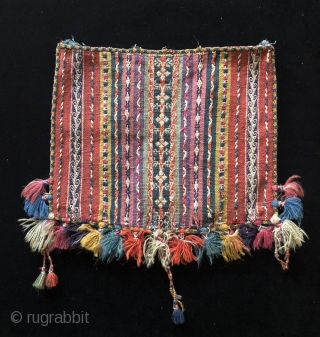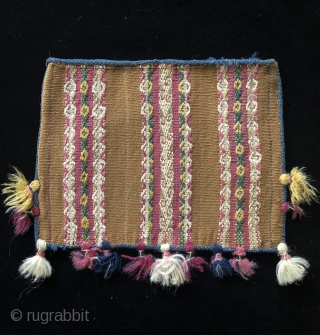Back
Tutorial part 4 – Coca bags from the Bolivar region
The three bags featured here are from the region of Bolivar in the province of Arque, department of Cochabamba, Bolivia. This is an area in Bolivia that is well known for fine, colorful ceremonial garments with beautifully woven pattern bands. Most of the 19th century Bolivar textiles that have survived into the 20th century were matrimonial garments passed down within families for generations. The three bags seen here all date to the mid 19th century or before. The largest of these is a classic type that has extensive patterning and an array of strong natural dyed colors. There are 10 colors used in this bag and the design layout indicates that it was made for a wedding ceremony. The multicolor vertical stripes with variously patterned bands that is seen here is the same concept that is found in the patterning of the larger matrimonial garments woven in the Bolivar region. The structure in the main design bands of this bag is a complimentary warp weave.
Because the Bolivar style covers a large area where weaving is practiced at a high level. Design motifs and weaving structures are easily recognizable as coming from Bolivar even though they can be found with many design variations. Without exception, Bolivar region textiles have excellent color and fiber. The scalloped motifs seen in some of the secondary pattern bands of these bags is diagnostic of the region. Bolivar c’huspas generally have a woven tubular edge finish called a ribete’. The ribete’ is a needle woven structure that is added once the bag is complete and off the loom. The weft yarns of a warp-faced ribete' are passed through both the warps and the sides of the bag simultaneously - using a needle and closing the sides as the ribete' is being woven. Ribete's have several design variations some of which can be seen in these three bags. The bag with the cochineal ground color and three patterned bands has a ribete’ with little repeating diamond shapes that are referred to as “eyes” by the Aymara. The bag with multi colored bands has a ribete’ that has a checkerboard-like pattern that is not seen as often. The tan colored bag has a plain blue ribete’. The tan colored ground of this bag is composed of vicuna fiber. Vicuna wool or hair is hard to come by and is considered very prestigious as it must be gathered from wild - not domesticated camelids. In Incan times it was reserved for use by the Inca and his nobles. It is an exceptionally fine and soft fiber that is almost never dyed because its distinctive color is easily recognized and treasured by all. Vicuna fiber is the world's finest animal fiber.
Another feature of bags from the Bolivar region are the beautifully worked decorative tassels along the sides and bottom of these bags. These are very delicately worked decorations that belie the time and care required to create them by their diminutive size. The two bags seen here that use three bands of patterned weave separated by open, un-patterned areas called “pampas” are probably somewhat older than the more heavily patterned, larger bag. They are somewhat unusual for Bolivar bags. Heavily patterned bags can be quite old as well, but the concept of three bands of patterned design on coca bags is an ancient aesthetic known since pre-Columbian times. See the Pre-Columbian bag with long fringes as an example.
price:
ALL SOLD
- Home
- Antique Rugs by Region
- Category
- Profiles
- Post Items Free
- Albums
- Benaki Museum of Islamic Art
- Budapest: Ottoman Carpets
- Gulbenkian Museum
- Islamic Carpets. Brooklyn
- Islamic Textiles. Brooklyn
- Konya Museum: Rugs
- MKG, Hamburg
- MMA: Caucasian Carpets
- MMA: Mamluk Carpets
- MMA: Mughal Indian Carpets
- MMA: Ottoman Carpets
- MMA: Safavid Persian Carpets
- MMA: Turkmen Rugs
- McCoy Jones Kilims
- Ottoman textiles. Met
- Philadelphia Museum
- Rugs and Carpets: Berlin
- Seljuqs at the Met
- TIEM, Istanbul: Carpets
- V&A: Classical Carpets
- Vakiflar Carpets: Istanbul
- Baluch Rugs: Indianapolis
- Gallery Exhibitions
- Jaf an Exhibition
- Alberto Levi Gallery
- Andean Textile
- Christie's London: 2016
- Francesca Galloway
- HALI at 40
- ICOC Washington, DC 2018
- Jajims of the Shahsavan
- London Islamic Week April, 2018
- Mongolian Felts
- Navajo Rugs: JB Moore
- Persian Piled Weavings
- SF Tribal & Textile Art Show 2020
- SF Tribal 2019
- Sotheby's: C. Alexander
- Turkish Prayer Rugs
- Turkmen Main Carpets ICOC 2007
